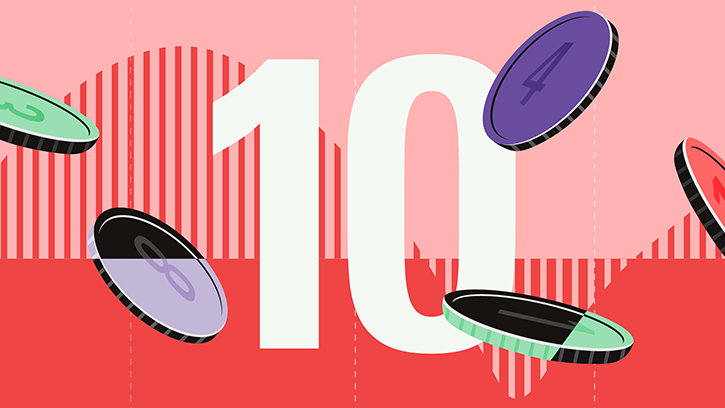
Index linked gilts led the way across the best performing funds in August, taking eight of the 10 ten spots, according to Morningstar data, with gold funds making up the rest of the list.
Increasing concerns over the global economy and fears of a recession have seen investors flock to perceived safe havens in recent months and August was no exception – this was an animated month around the globe, with Boris Johnson proroguing parliament in the UK, Donald Trump flip-flopping on Chinese tariffs, and political demonstrations in Hong Kong.
Flight to Safety
The iShares Index Linked Gilt Index fund and Bronze-rated Royal London Index Linked fund were the best performers, returning 9% and 7.8% respectively in August. Index-linked funds are a popular choice among investors at times of uncertainty, because the assets they invest in rise in line with inflation. This provides protection to investors concerned about the value of their capital being eroded. Widespread uncertainty has seen a flood of money into government-backed gilts, pushing the prices up, which has helped drive strong performance in these funds.
The Royal London fund is managed by two gilt market veterans – Paul Rayner and Craig Inches - and Morningstar analyst Louise Babin says: “The comanagers have worked together for almost a decade; we view such collaboration as a positive as it encourages challenge and discussion.”
Gold, another investment which thrives during turbulent times, had another strong month – its price has reached its highest levels since 2013 as anxious investors have turned to the precious metal to protect their portfolios.
The Bronze-rated BGF World Gold and Blackrock Gold and General funds both feature among the top performers of the month, returning 6.4% and 5.5% each. The two are also the best performer funds year to date, delivering a staggering cumulative 45.8% and 36.6% respectively so far this year.
The appeal of the yellow metal increased after the US bond yield curve inverted in the month. While gold typically lacks appeal as an investment as it offers no coupon or return, it becomes more attractive when yields on gilts and fixed income investments are lower.
Ben Yearsley, director at Shore Financial Planning says: “After a number of years when gold had been dismissed, and crypto currencies had seemingly become the de facto alternative to mainstream currencies, 2019 has shown you can’t write off the allure of the shiniest metal. Is it a surprise that US real rates have started to fall in 2019 and gold has risen? Many see this as the driver of the gold price and not supply and demand.”
Worst Performers
Emerging markets focused funds make up most of the worst performers – particularly those focused on Latin America. An election in Argentina sent the country's stock market spiralling, falling 48% in one day, while a sluggish Brazilian economy has sparked a sell-off.
Neutral-rated Blackrock Latin America was the worst performer of the month, with a high exposure to Brazilian equities weighing on performance. Indeed, its top three holdings, which account for almost one quarter of its assets, include two Brazilian banks as well as mining giant Vale.
Two small-cap funds appear among the weakest performers, taking the brunt of investor jitters as they shied away from risky assets. Bronze-rated Kempen (Lux) Global Small-Cap, Neutral-rated Legg Mason RY US Smaller Companies and Legg Mason IF Royce US Smaller Companies fund were down 7.9% and 7.4% in the month respectively.
It will come as little surprise to investors that the belaguered Woodford Equity Income fund features high up the list of worst performers. At the end of August, its authorised corporate director Link confirmed the fund's poor performance since it suspended trading almost three months ago. The embattled fund, which has a Negative rating from Morningstar analysts, was down 10.3% in August. According to Morningstar data, it is also the weakest fund year to date, down 20.7% since January 1.
“Things have gone from bad to worse for Woodford, with the fund suffering some stock specific issues as the embattled manager continues to restructure the portfolio,” says Adrian Lowcock, head of personal investing at Willis Owen.





























